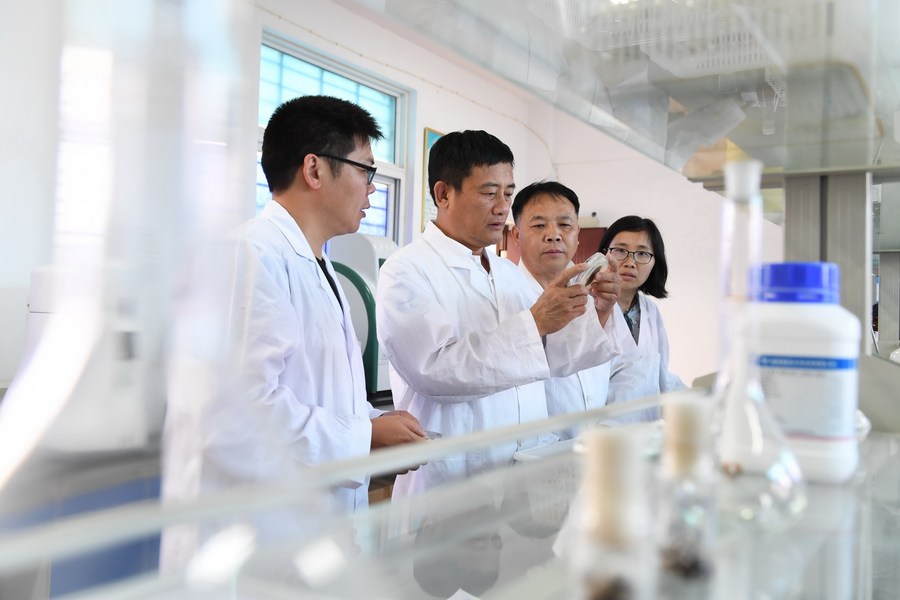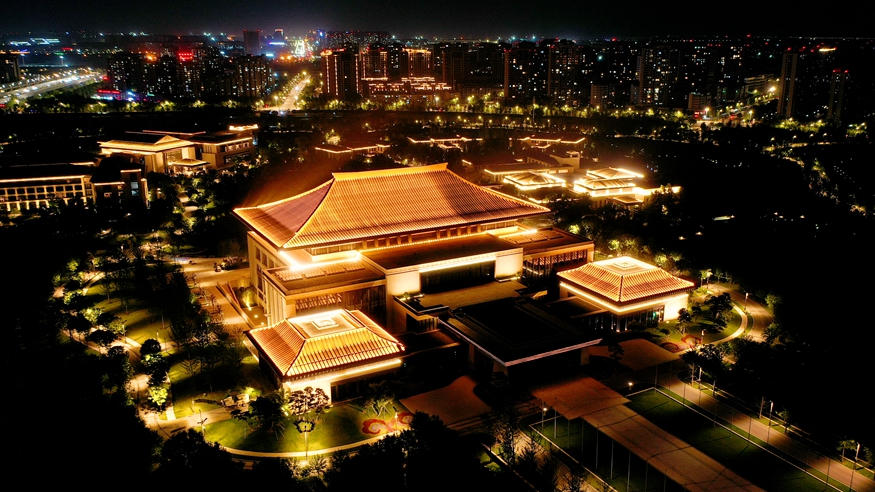
Sci-tech expert Jiang Wenqing (2nd L) conducts an experiment at a laboratory in Nanping City of southeast China's Fujian Province, May 27, 2021. (Xinhua/Lin Shanchuan)
BEIJING, May 16 (Xinhua) -- Over the past 10 years, China's sci-tech strength has grown along with the development of the country's economic strength, becoming a driving force for Chinese modernization, according to a press conference on Monday.
China's sci-tech strength and its global influence in innovation have been significantly enhanced, Wu Zhaohui, vice minister of science and technology, told a press conference on the 2023 Zhongguancun Forum in Beijing.
The R&D investment of Chinese society has increased three times from 1 trillion yuan (about 144 billion U.S. dollars) in 2012 to 3 trillion yuan in 2022, according to Wu.
In terms of the quantity and quality of its scientific research personnel, China has maintained its first-place global position for many years, he said.
According to annual statistics issued by the Institute of Scientific and Technical Information of China, which is under the Ministry of Science and Technology, China had 1,808 "hot papers" as of September 2022, accounting for 41.7 percent of the world's total and ranking first globally.
Hot papers refer to those published within the previous two years that are cited a sufficient number of times in the most recent two months to be placed in the top 0.1 percent when compared to peer papers.
China's sci-tech innovation props up the country's industrial transformation and development, and its ability to serve high-quality development has been significantly boosted, Wu said.
The volume of technology contract transactions in China is relatively large, rising from 600 billion yuan in 2012 to 4.8 trillion yuan in 2022, Wu said.
In the past decade, China has won major scientific research achievements, including its development of quantum information, nuclear power technology and AI technology. These technologies have not only spawned and promoted the development of strategic emerging industries, but have also accelerated the transformation and upgrading of traditional industries.
The 2023 Zhongguancun Forum will focus on cutting-edge technologies and future industries, and showcase the latest technological advances in the fields of the metaverse, AI, quantum information, brain science, and cell and gene therapy, said Yu Yingjie, vice mayor of Beijing. Many advanced technological achievements will make their debuts at the forum's exhibition.
The ability of China's sci-tech services to improve people's livelihoods and meet their demand for better lives has been greatly increased.
Science and technology are important guarantees for food security. According to Wu, the contribution rate of agricultural science and technology has increased from 53 percent 10 years ago to 62 percent in 2022. "Agricultural science and technology have contributed a lot to China's rural vitalization and poverty alleviation."
Sci-tech innovation propels the development of smart medical care and the new medicine. Internet hospitals allow medical resources to be allocated in a more balanced way.
In recent years, many Chinese-developed anti-cancer drugs have been listed, and the five-year cancer survival rate in China has increased from 30 percent to 40 percent, Wu said.
The 2023 Zhongguancun Forum is scheduled to take place in Beijing from May 25 to 30. Themed "Open Cooperation for a Shared Future," it will include conferences, exhibitions, research achievement releases, competitions in cutting-edge fields and technology trading. ■












